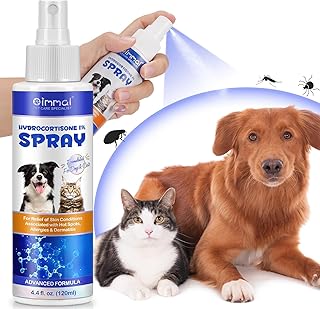Itchy dogs can be a common sight for pet owners, with constant scratching, licking, and rolling on the floor. While occasional scratching is normal, persistent itching could signal an underlying issue that needs attention. Allergic dermatitis, or skin allergies, has been identified as a top reason for dog visits to the vet, according to a recent survey. This condition can manifest through symptoms like frequent scratching, recurrent ear infections, and skin changes.
Various factors can contribute to your dog’s itchy skin, with skin allergies being a significant culprit. Flea allergies, food allergies, environmental triggers, and contact allergies are potential causes of skin irritation in dogs. Identifying the specific allergen triggering the reaction is crucial in providing relief for your furry friend and preventing further health complications.
Skin allergies can cause discomfort for dogs and may lead to secondary issues like skin infections and wounds if left untreated. Excessive licking and scratching can damage the skin, resulting in hair loss, body odor, and inflammation. Severe infections may even cause pain for your pet. Therefore, prompt intervention and appropriate treatment are essential in managing skin allergies.
When addressing your dog’s itchy skin, it’s important to consult a veterinarian for proper diagnosis and treatment. While over-the-counter remedies and home treatments may offer temporary relief, they may not address the root cause of the itch. Antihistamines and prescription steroids are commonly used to alleviate itching in dogs, but they may come with side effects and limitations in treating certain allergies.
August is recognized as Itchy Pet Awareness Month, emphasizing the importance of addressing pet skin allergies. If your dog exhibits signs of persistent itching, seeking professional advice is recommended to determine the most effective treatment plan. Your vet may prescribe specialized medications tailored to your dog’s condition to provide long-term relief and improve their quality of life.
In conclusion, understanding the causes of your dog’s itchiness and taking proactive steps to manage skin allergies can help your pet lead a healthier and happier life. By prioritizing your dog’s skin health and seeking professional guidance, you can address their discomfort and promote overall well-being. Remember, a happy dog is one free from the burden of incessant itching.
📰 Related Articles
- Expert Tips to Relieve Pets’ Itchy Skin Discomfort Naturally
- Top Face Washes for Acne-Prone Skin: Expert Recommendations
- Top Face Oils for All Skin Types: Expert Reviews
- Top Dog Brushes for 2025: Expert Picks for Grooming Success
- Tent Camping Tips: Enhance Your Outdoor Experience with Expert Advice






